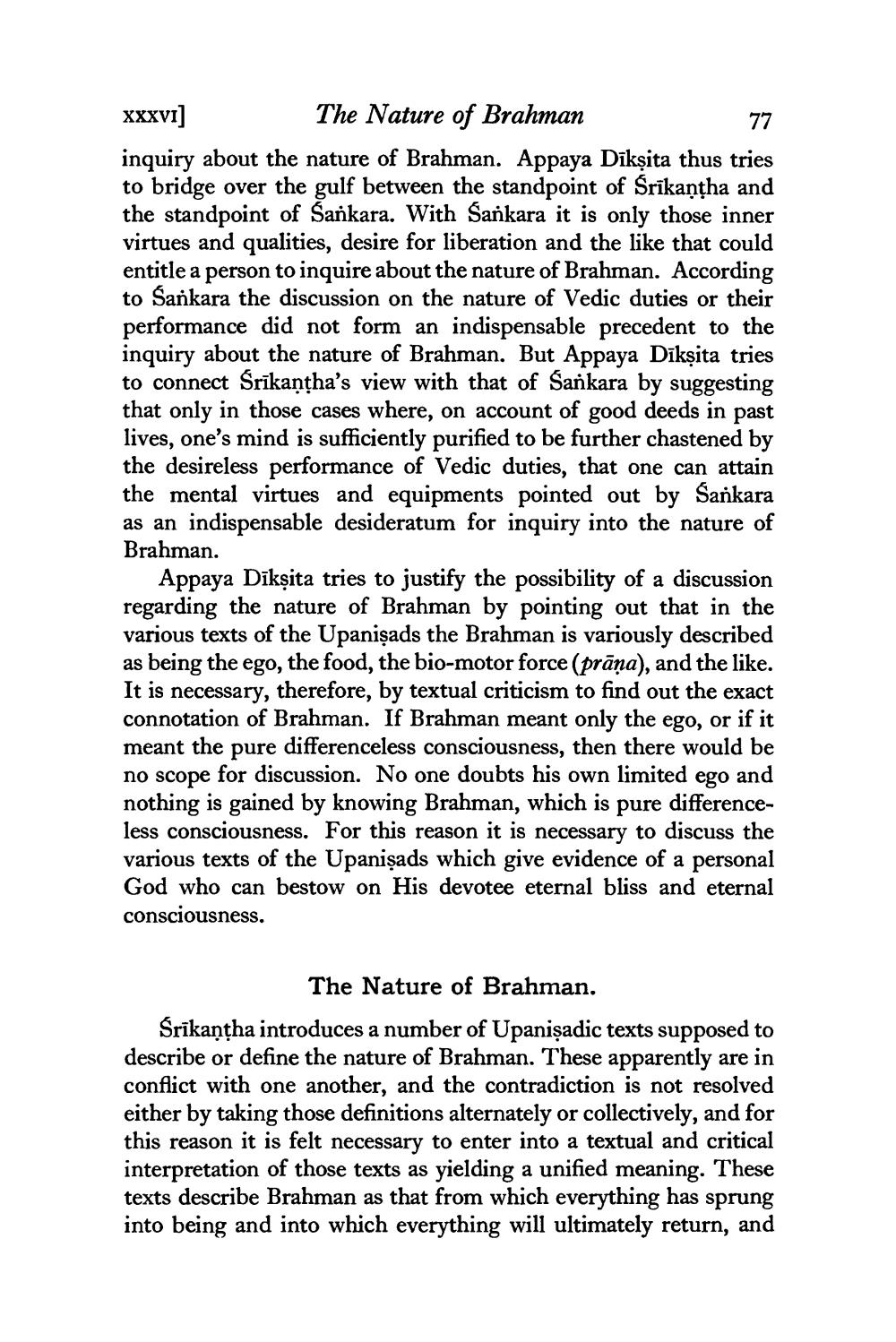________________
XXXVI] The Nature of Brahman
77 inquiry about the nature of Brahman. Appaya Dīkşita thus tries to bridge over the gulf between the standpoint of Srikantha and the standpoint of Sankara. With Sankara it is only those inner virtues and qualities, desire for liberation and the like that could entitle a person to inquire about the nature of Brahman. According to Sankara the discussion on the nature of Vedic duties or their performance did not form an indispensable precedent to the inquiry about the nature of Brahman. But Appaya Dikṣita tries to connect Srīkantha's view with that of Sankara by suggesting that only in those cases where, on account of good deeds in past lives, one's mind is sufficiently purified to be further chastened by the desireless performance of Vedic duties, that one can attain the mental virtues and equipments pointed out by Sankara as an indispensable desideratum for inquiry into the nature of Brahman.
Appaya Dīkşita tries to justify the possibility of a discussion regarding the nature of Brahman by pointing out that in the various texts of the Upanişads the Brahman is variously described as being the ego, the food, the bio-motor force (prāņa), and the like. It is necessary, therefore, by textual criticism to find out the exact connotation of Brahman. If Brahman meant only the ego, or if it meant the pure differenceless consciousness, then there would be no scope for discussion. No one doubts his own limited ego and nothing is gained by knowing Brahman, which is pure differenceless consciousness. For this reason it is necessary to discuss the various texts of the Upanişads which give evidence of a personal God who can bestow on His devotee eternal bliss and eternal consciousness.
The Nature of Brahman.
Śrīkantha introduces a number of Upanișadic texts supposed to describe or define the nature of Brahman. These apparently are in conflict with one another, and the contradiction is not resolved either by taking those definitions alternately or collectively, and for this reason it is felt necessary to enter into a textual and critical interpretation of those texts as yielding a unified meaning. These texts describe Brahman as that from which everything has sprung into being and into which everything will ultimately return, and




